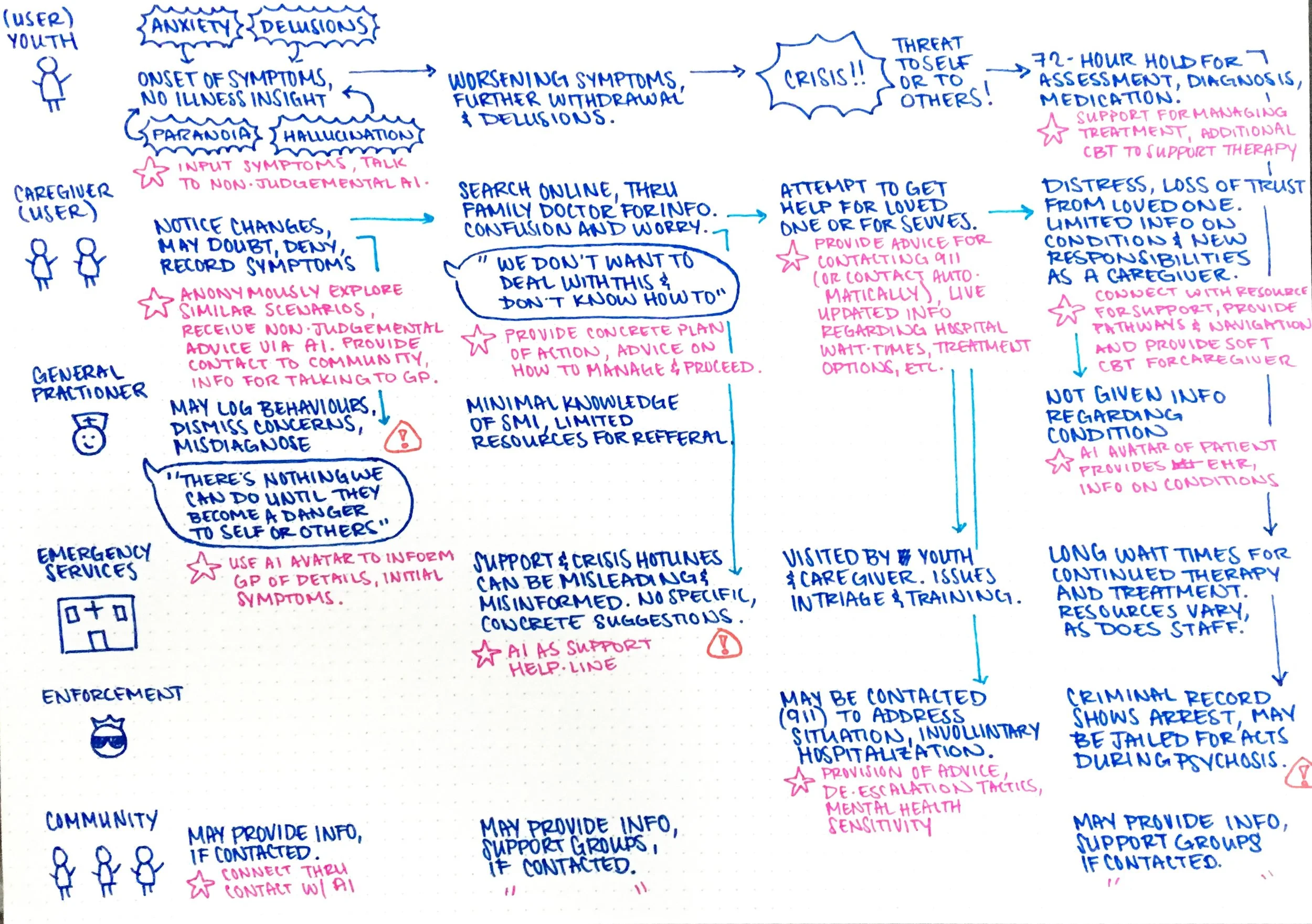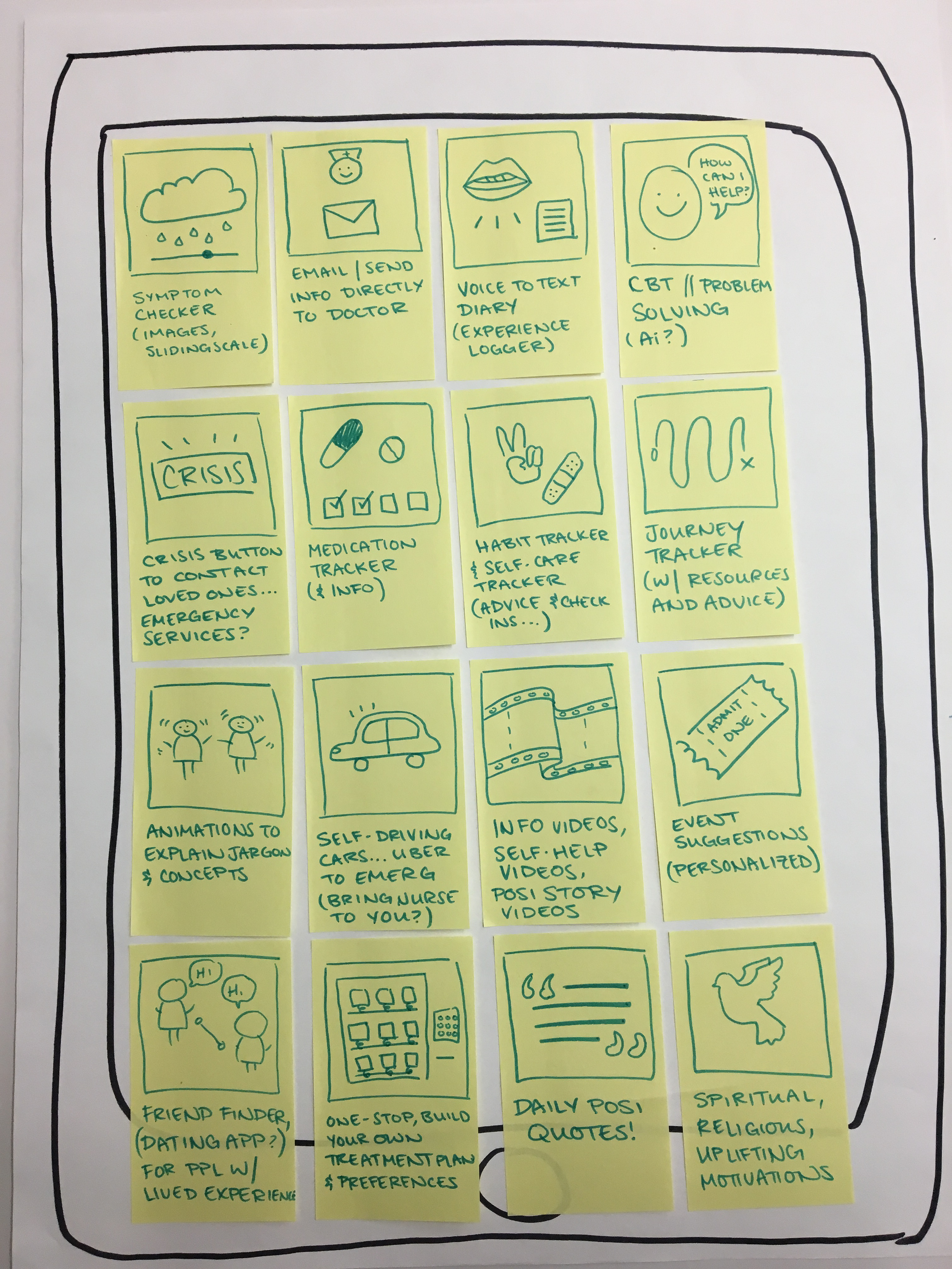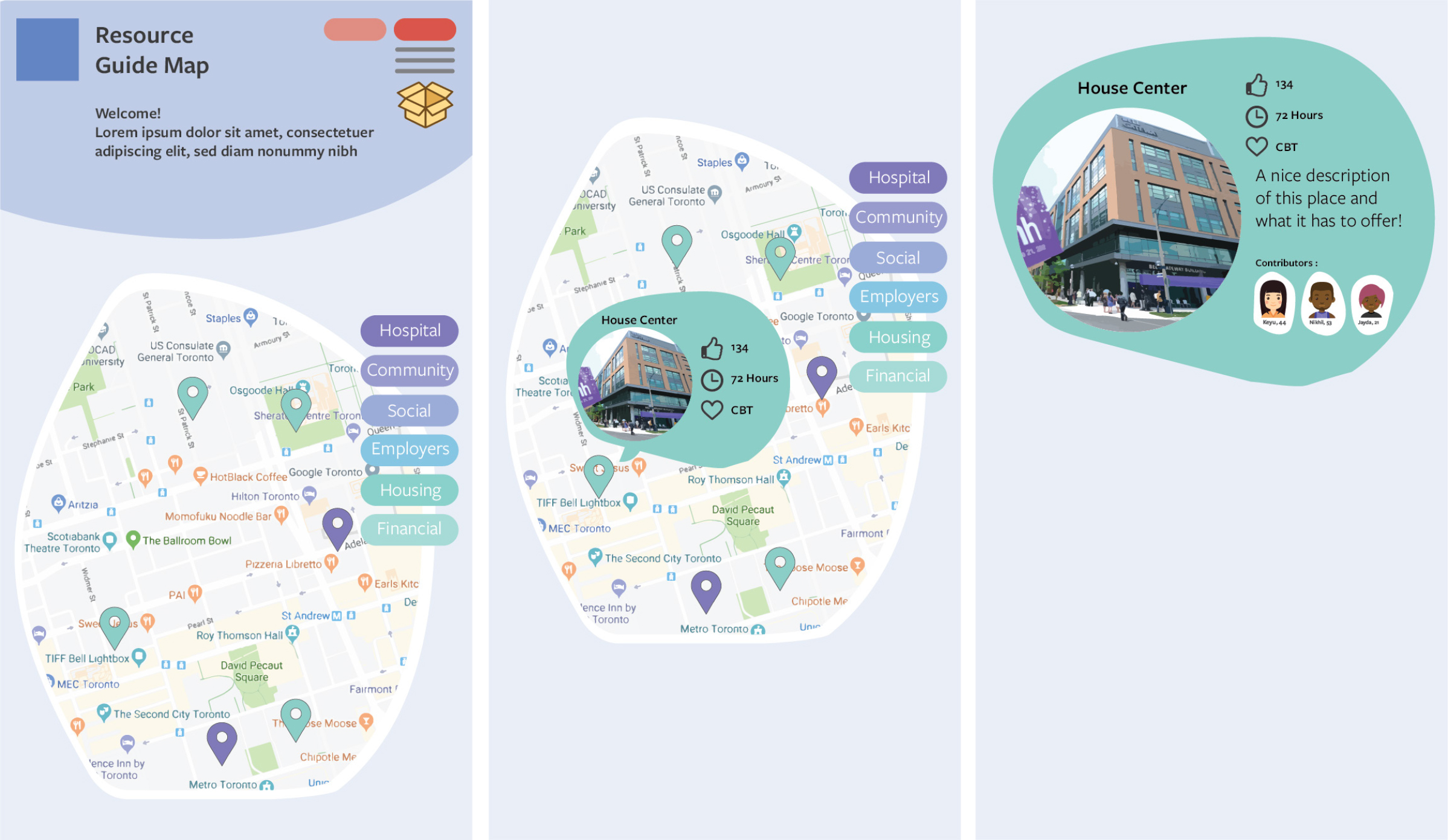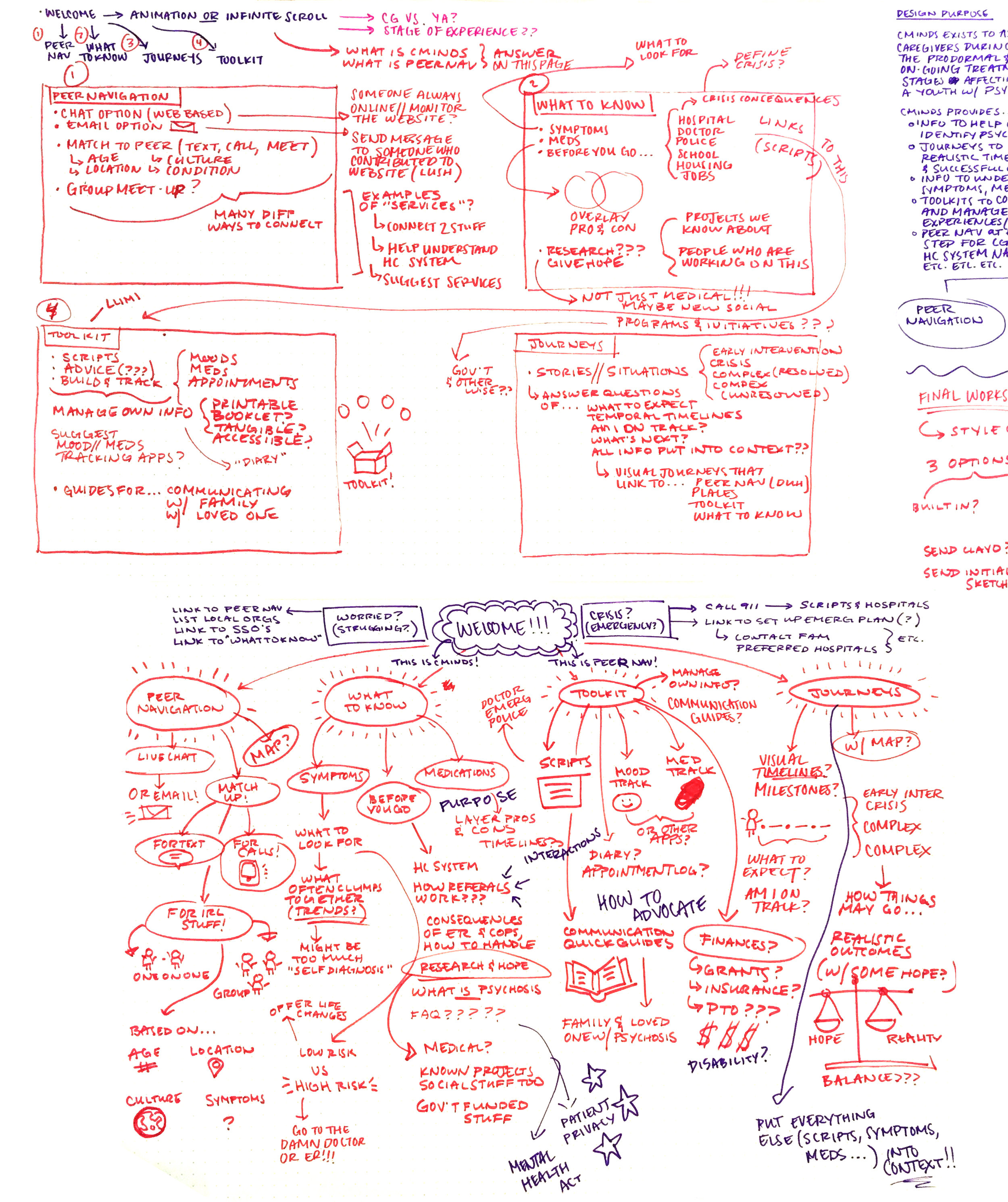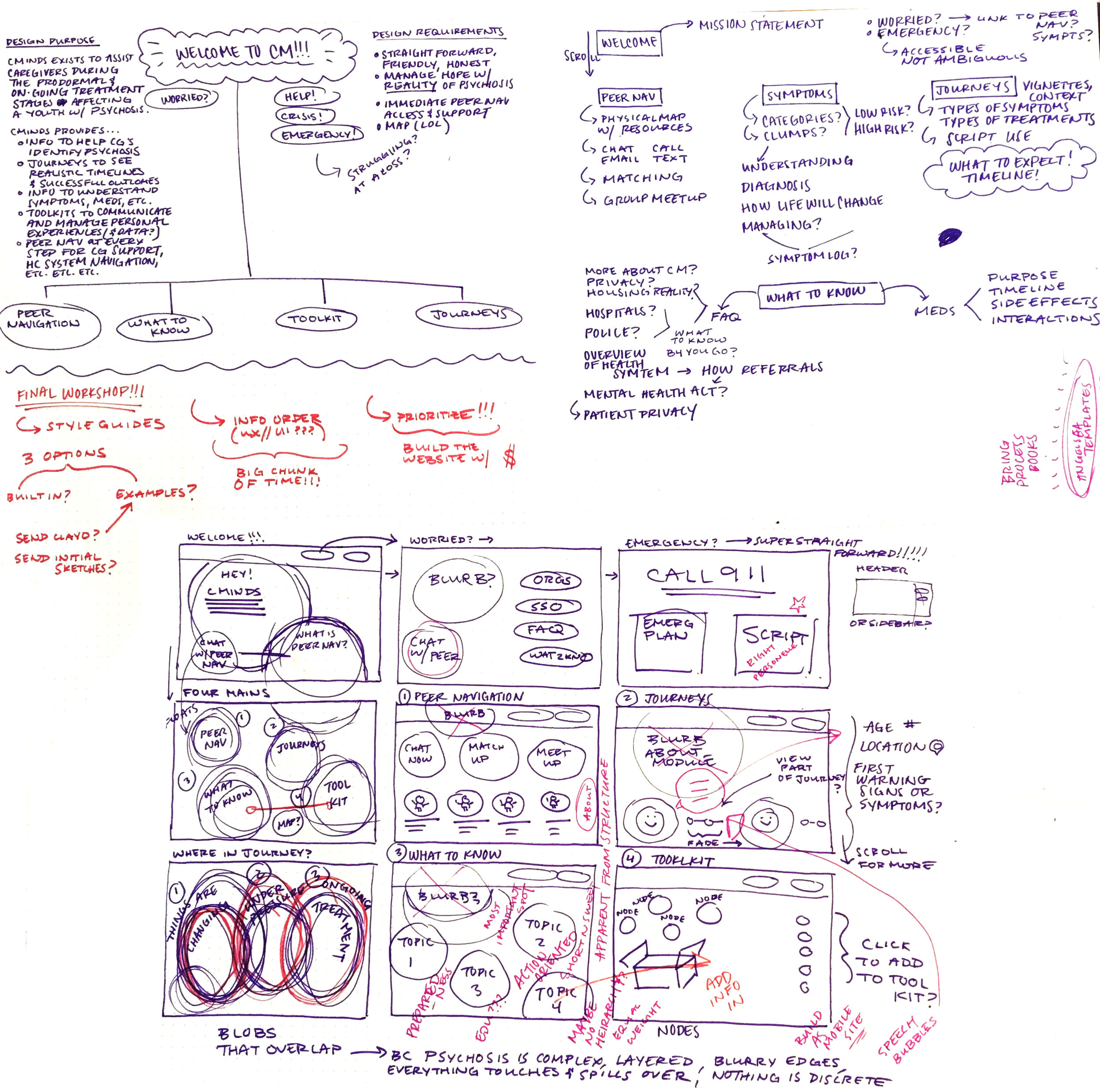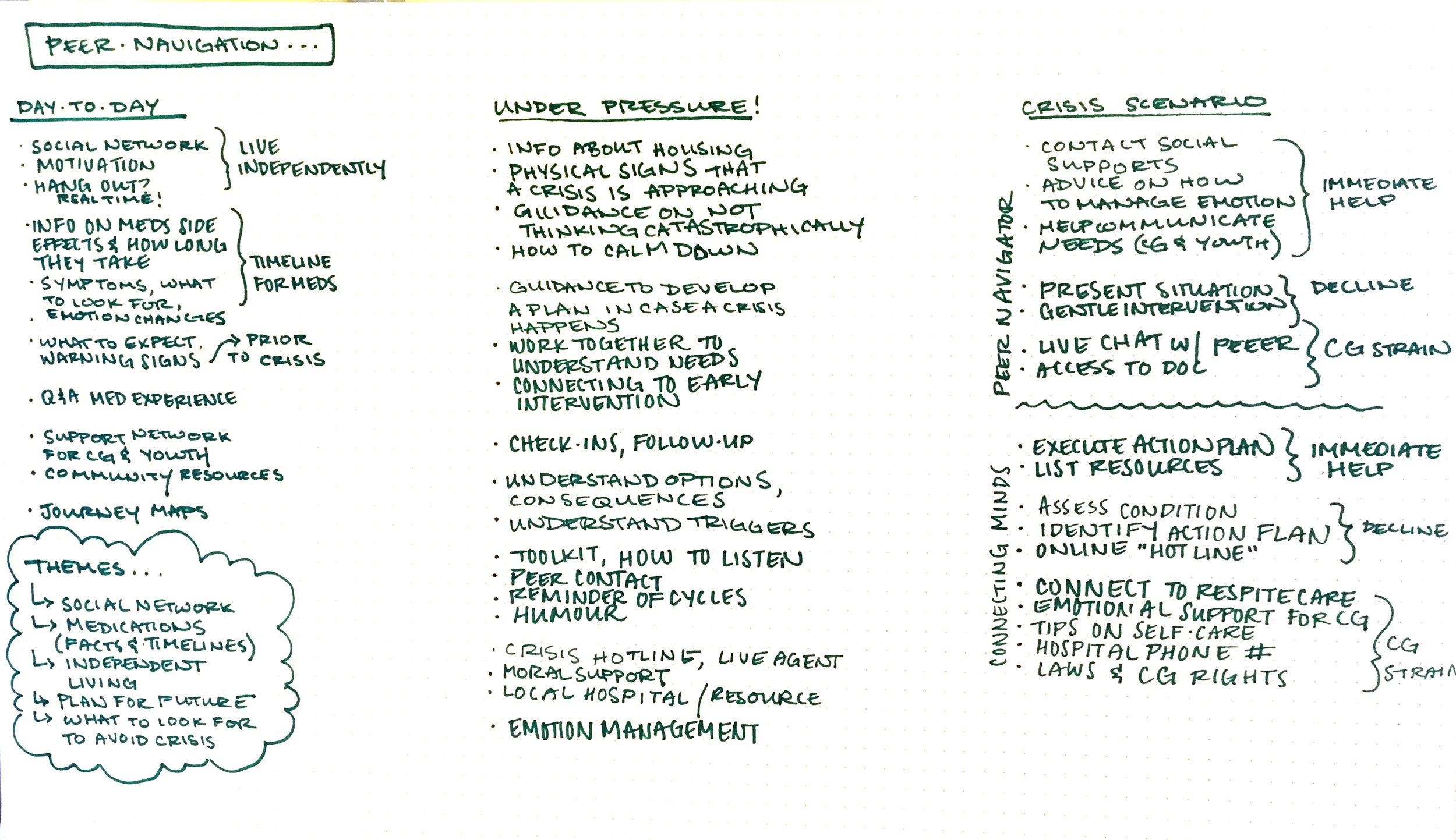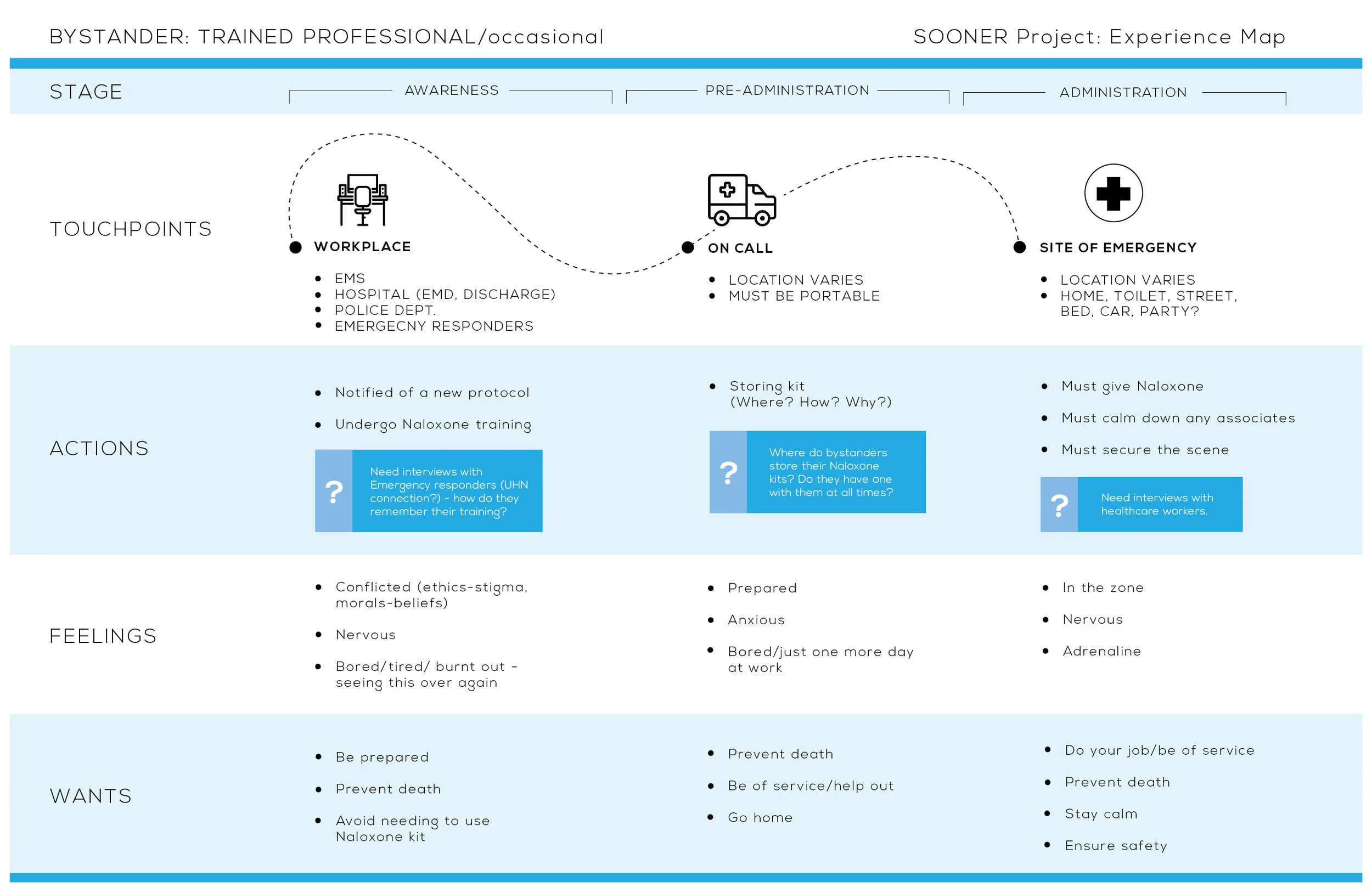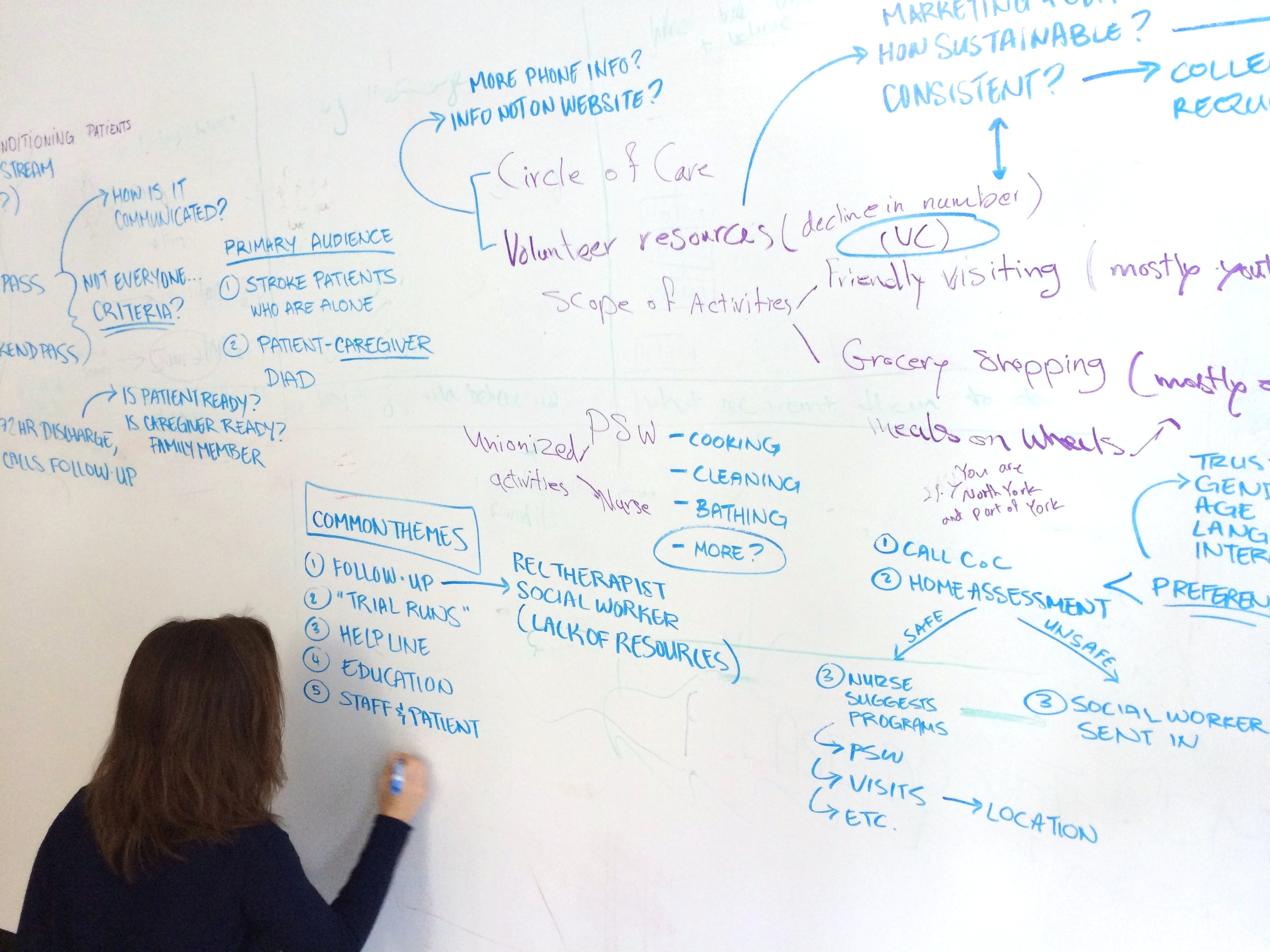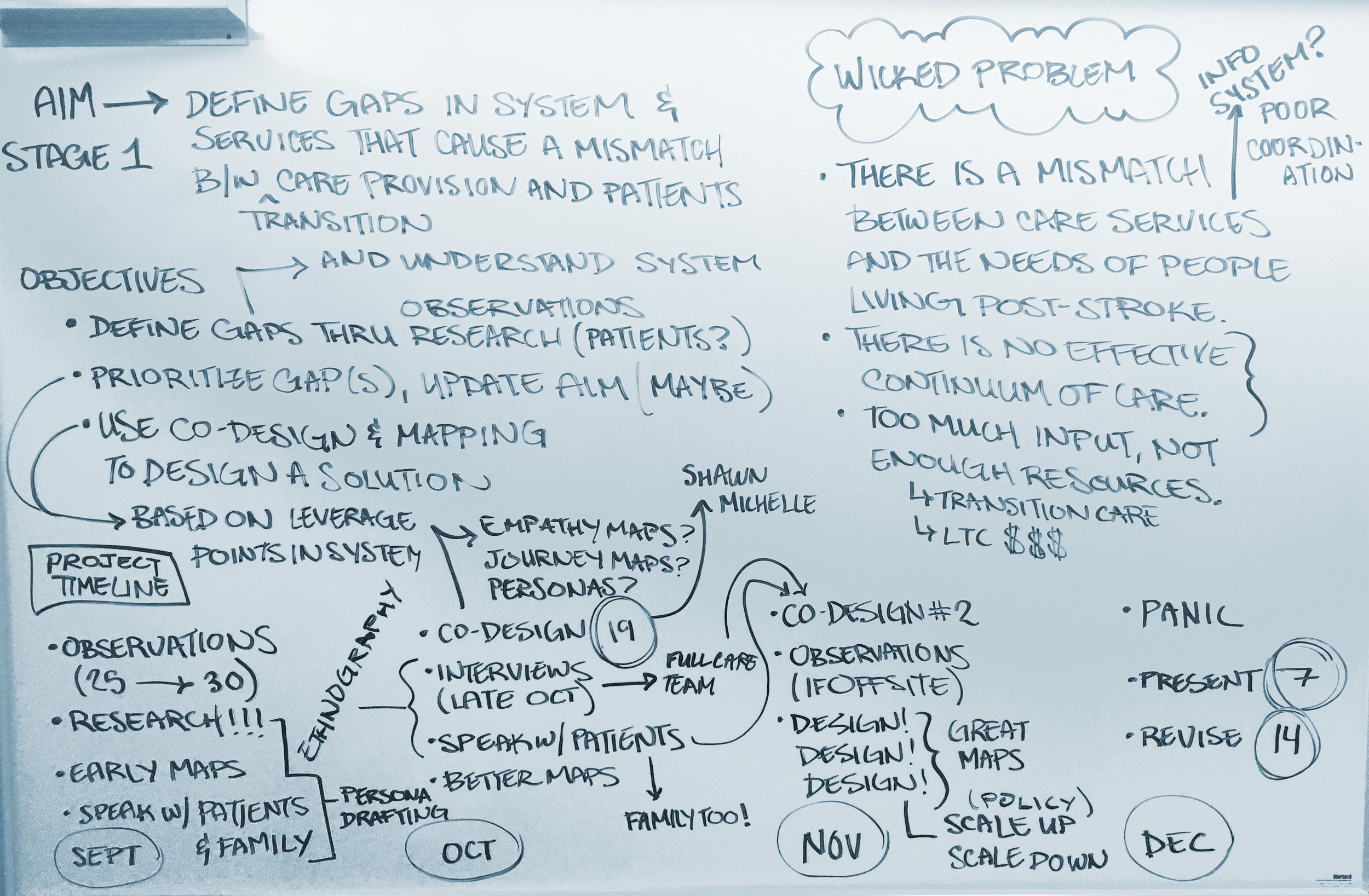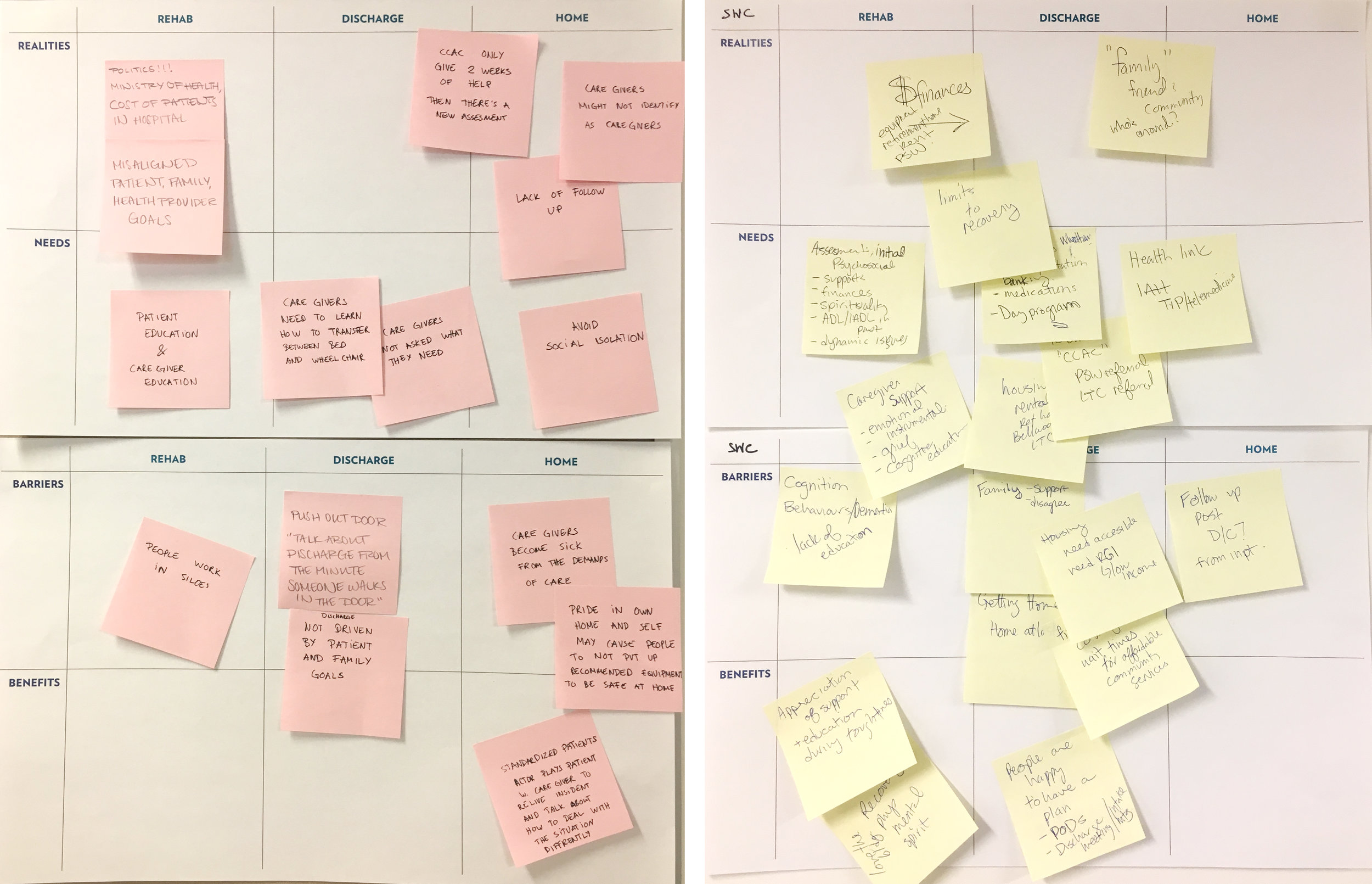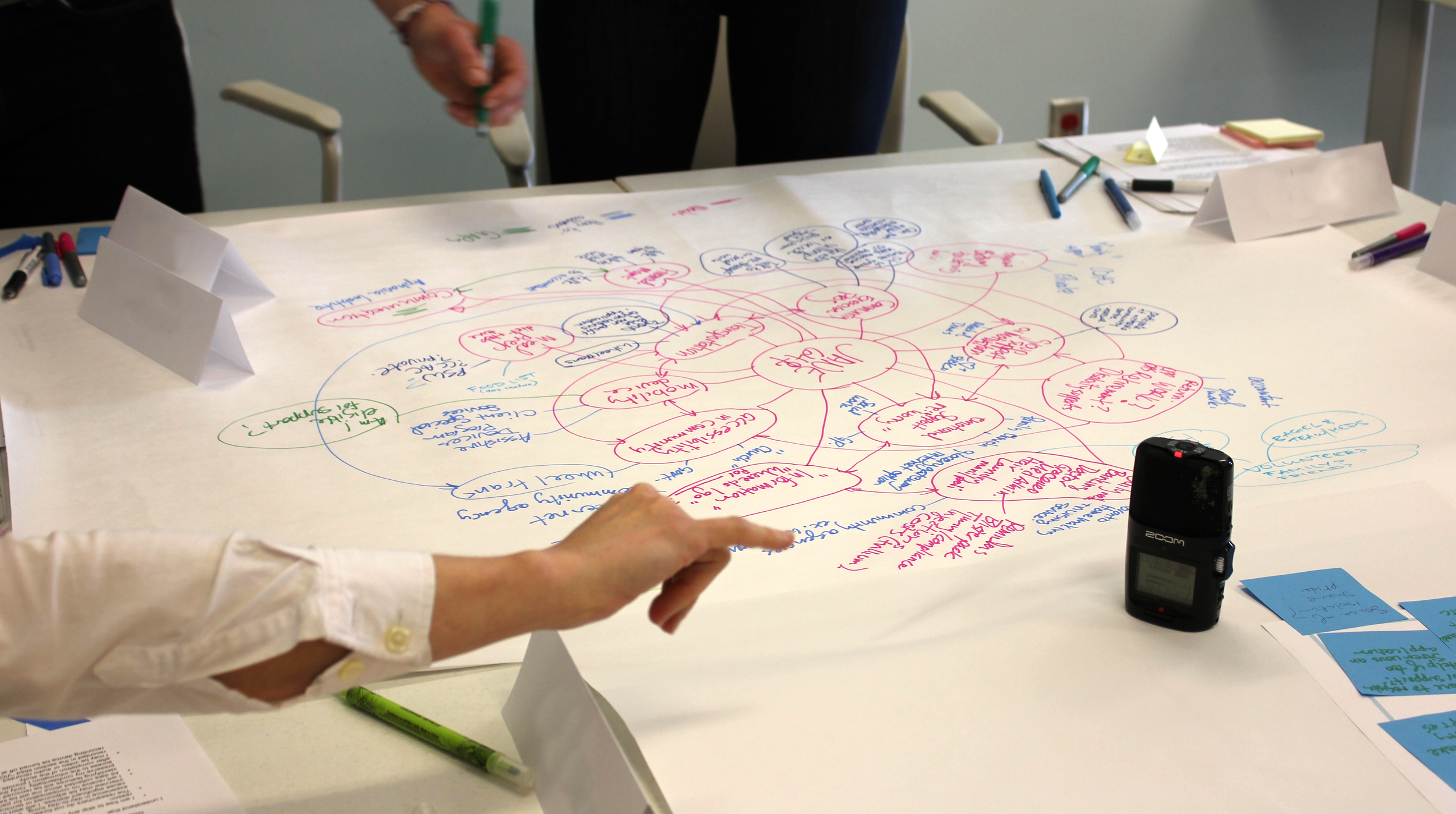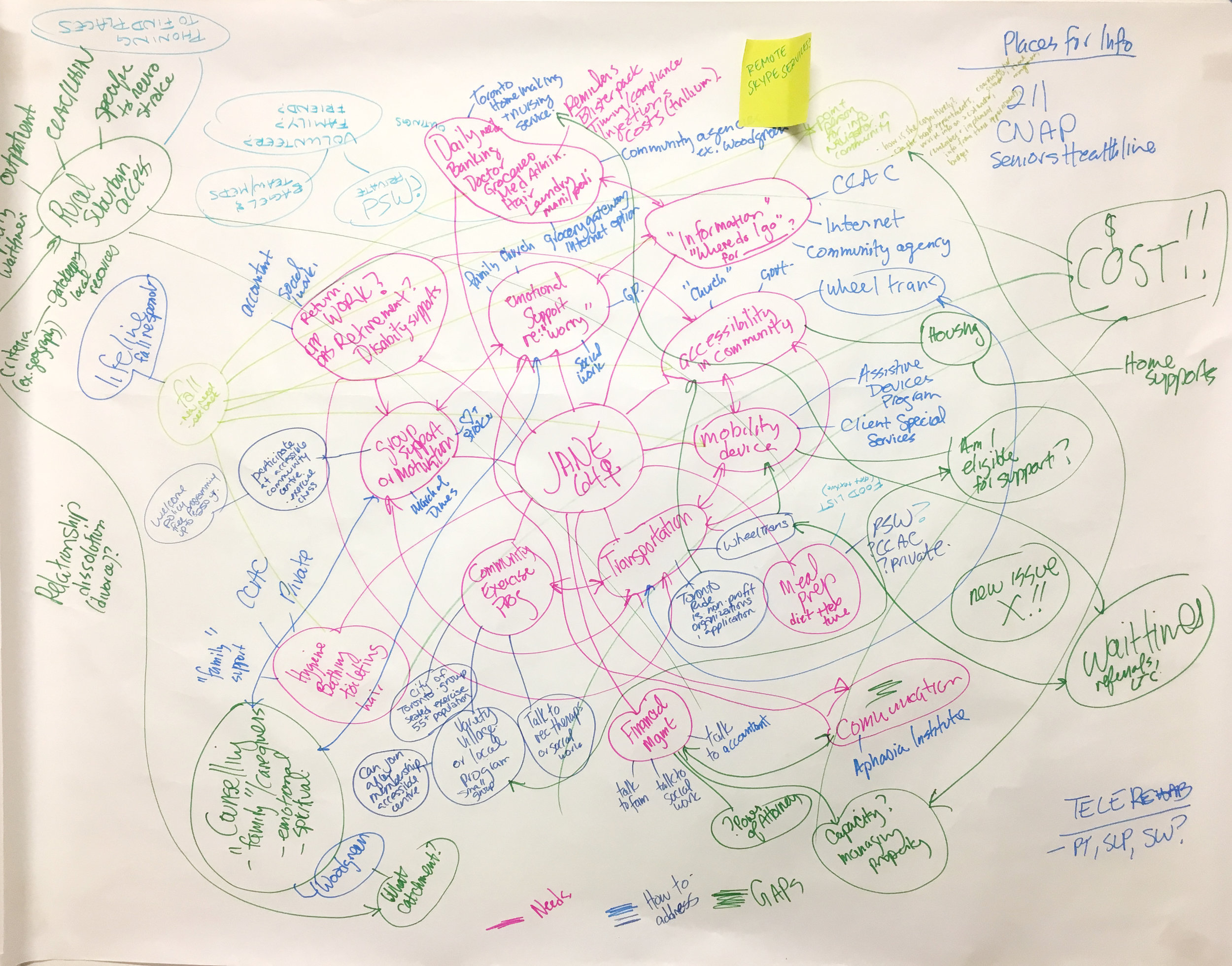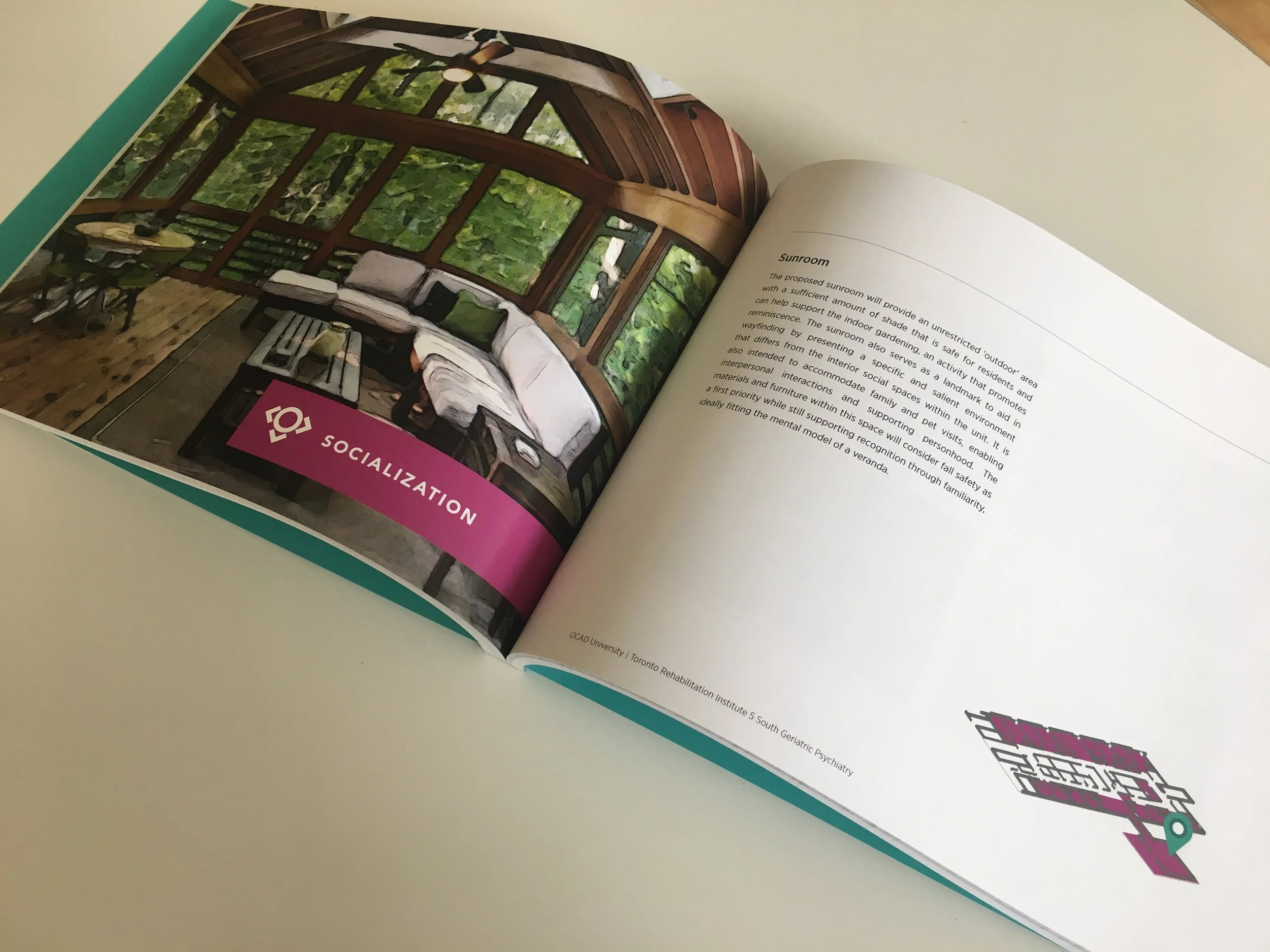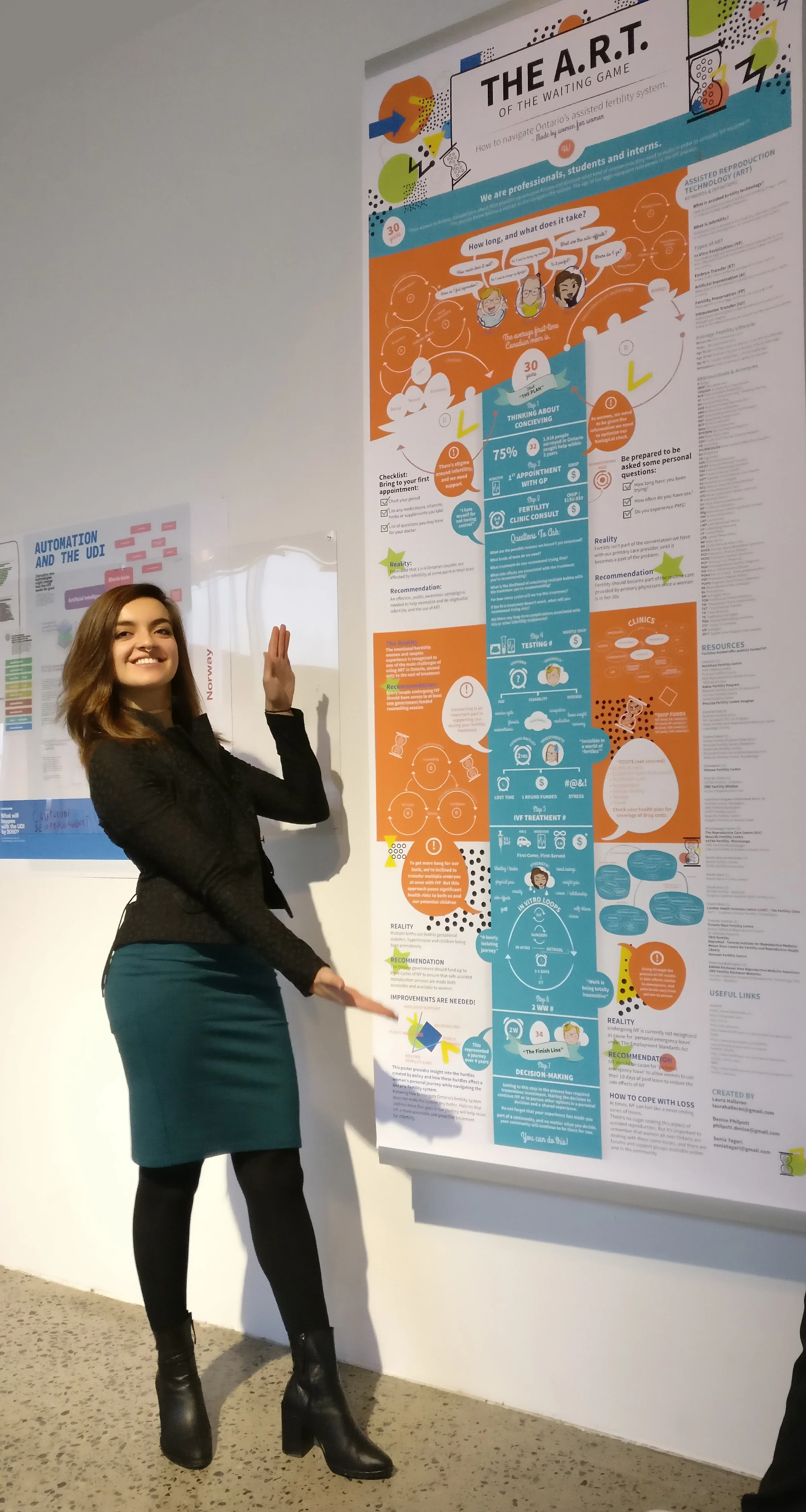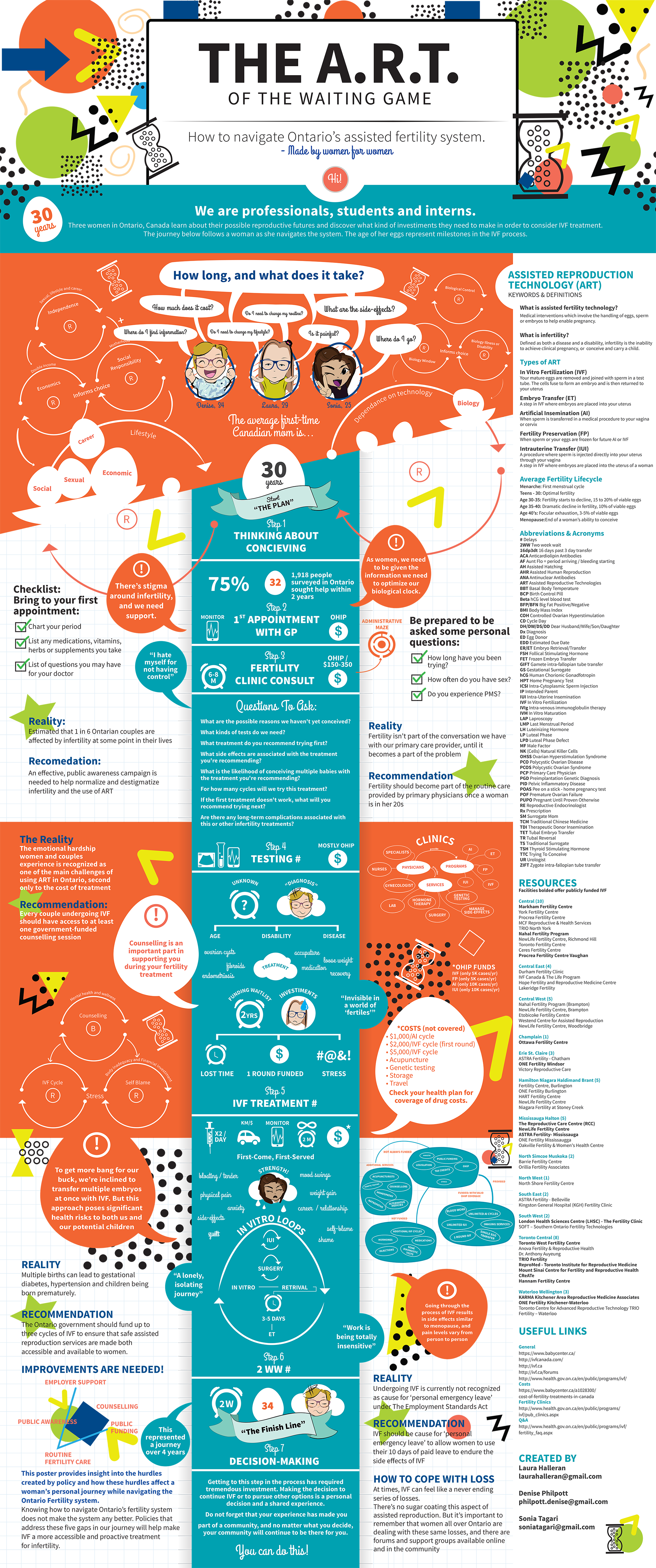2018 - 2019
In a project funded by the Healthy Generation Grant with University of Toronto, I lead a design team from OCAD U . We worked with University of Toronto researchers, who were informed by lived-experience as caregivers, and a recruited caregiver group to design a digital platform connecting caregivers to peer navigators and timely resources in Toronto. The project had two research prongs. One was a survey of youth with psychosis and caregivers, handled by the Youth Advisory Committee (YAC), of which the founder of connectingMINDS and other team researchers are members, at the Schizophrenia Society of Ontario (SSO) with involvement from the University of Toronto. The other was a series of co-design workshops where participants with lived experience would work with the design team to create a digital platform to best suit their needs. Managing the design operation, I planned, orchestrated, and analyzed four caregiver engagement workshops alongside the design team. Findings from these workshops guided design decisions and information content for the final prototype. Throughout the project, the design team also gave progress presentations to the stakeholders in the YAC and University of Toronto research group. It is of note that members of the YAC are all youth with experience as caregivers for a family member with psychosis.
I joined the project because I strongly believe in the importance of mental healthcare, especially for youth. I also saw it as opportunity to learn more about mobile app design and prototyping. The design process started with a literature review that outlined the impact of peer-navigation for schizophrenia, provided by the University of Toronto research team. Our team began gathering examples of digital platforms addressing other severe mental illness to use as precedent and inspiration. During participant recruitment for co-design workshops, we ran two preliminary team workshops with members of the YAC. These workshops had a few main purposes: to familiarize the researchers with design activities and design thinking, and to trial run activities for use in the participant workshops while simultaneously gathering initial data.
Activities generated caregiver journey maps for accessing and using psychosis treatment, timelines of resource access with lists of successful resources in the Greater Toronto Area, scenarios during a care journey where caregivers would ideally access a digital platform or mobile app, and possible features that this tool would have. We included a wild care activity to generate solutions for the future and solutions that did not involve a mobile app, just to broaden thinking and encourage the research team to consider scaling the project in different directions.
Once caregivers were recruited, I lead the design team in facilitating four experience-based co-design design workshops. Each built on information gathered in the previous. We showcased the design process, updated the participants on analysis completed by the design and research teams between workshops, gathered feedback on analysis conclusions and design directions, and facilitated participants to share their ideas and make direct edits to the prototype iterations. While planning workshops, I brainstormed with the design team activities to best elucidate the information we wanted. This included points in the care journey where a peer-navigation/information platform would be of most us and what qualities, features, and modes of communication the platform needed. Activities we used were mind mapping, rapid ideation, scenario building, persona building, journey mapping, and paper prototype creation. Not only did these activities gather crucial data, they also serve as artifacts of the design process and markers of progress toward the final design.
Two of the four design workshops devoted a decent chunk of time to feedback on paper prototypes for the digital platform. After using the feedback to hone and tinker, we established a prototype in Invision and hosted five high-fidelity user-testing feedback sessions with caregivers, with action prompts and post-testing interviews. In addition, YAC sent out surveys completed by 40 caregivers across the Greater Toronto Area. The application is in development.
For additional detailed information about the process, project, and more recent prototypes, please contact me via email at soniatagari@gmail.com












